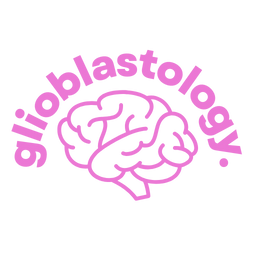Note: I wrote this post yesterday after reading the article mentioned in what follows. I did not publish. I wanted to return, edit, clean up, ensure my case was compelling.
Instead.
I missed a window of opportunity to strike while the iron was hot, as it were. Tonight Medium ran this response from @cancergeek to the piece I critique. I realize my timely response is preferable to an edited and polished version.
I hope you’ll appreciate this raw, unfinished draft for the value it offers from my perspective–the patient perspective.
**
I note a growing body of literature that advances the revision of medical practice in light of a personal illness experience. Scrolling the opinion and editorial pages of the New York Times, STAT News, NPR, The Atlantic, and many more outlets reveals emergency medicine physicians, surgeons, hospitalists, and so forth describing their clinical lives prior to an illness experience, followed by a narrative reconstruction of that experience, leading ultimately to a cathartic synthesis, “if only I had known then, what I’ve manage to learn now…”
On its face these are all together helpful and instructive narratives! Each of us is privileged to learn from our experiences–physicians and anyone else. Obviously, we are all vulnerable to illness; hence, these narratives stand to benefit each of us. Besides, it would be fundamentally antithetical to medical research to imagine that our knowledge of medicine is somehow complete, or extensive enough, that lessons no longer lie prone at every turn. Indeed, it is a strength of the research and clinical communities to admit fallibility and openness to change; traits which are to be honored, taught, and practiced.
OK, this all sounds good, but to start that paragraph, I said, “on its face,” what gives!?
Each evening before bed, I return to four or five articles that I have opened in browser windows on my phone from daily email roundups, Twitter, Facebook shares, etc. Typically these are healthcare policy editorials, new medical research releases, or, no surprise, medical narratives like those that I described to you.
Last night I focused attention on this piece from NPR’s medical news service, Shots, carrying the compelling (if not click-bait) title, “Brush with death leads doctor to focus on patient perspective.” With apologies to NPR, I’ll pick on this article. I cannot imagine that the doctor was oblivious to the “patient perspective” prior to their “brush with death.” I’ll concede that what is meant by the headline is to suggest a reorientation of priorities following a traumatic experience (and titles/headlines are an editorial call), but let’s be fair to the subject of the article and not gesture toward the idea that only by way of trauma might this clinician be brought to focus on the patient perspective. That strikes me as uncharitable.
More robustly, both as a response to editorial teams generally, and to those attuned to this physician-turned-patient narrative genre, particularly, I continue to implore you to tap into the patient community not only for one-in-a-million illness recovery/survivorship stories, and make-a-wish feel good coverage, but to earnestly derive action-oriented critiques of the American healthcare system. The physician-turned-patient narrative offers great utility because it carries both credibility and a familiarity of the system that is critiqued. There is an inbuilt plot twist because the doctor learns through role reversal. Yet these narratives always lead with a clinical orientation and so are inherently scope-limited.
The patient community also carries intimate knowledge of the healthcare system, policies, protocols, and knowledge of disease and symptom management. We are expert communicators of the healthcare system because we field telephone calls and visits from family, friends, and coworkers.
NPR reports these words from the brush-with-death clinician:
“To listen to our patients with a generous ear does require a willingness to relinquish control of the narrative […] Our questions allow for the possibility that we do not already know the answers. By not dominating the flow of information, we allow the actual history to emerge.”
Let’s follow doctor’s orders! Extend a generous ear to our patients who are navigating our healthcare system, interacting with clinicians, thinking, feeling, and living our diseases. If role reversals and plot twists portray the physician as coming down from on high to learn from the patient perspective. Let us also encourage our patients to reconstruct their experiences that they may be lifted up to exercise the influence of a clinician.
I am an author informed by disease. Physicians, patients, we all have lessons to learn and stories to tell. We may bring to light a path forward for both physicians and patients that we may travel together as we recognize our shared humanity found in close proximity to the practice of medicine.

Leave a comment